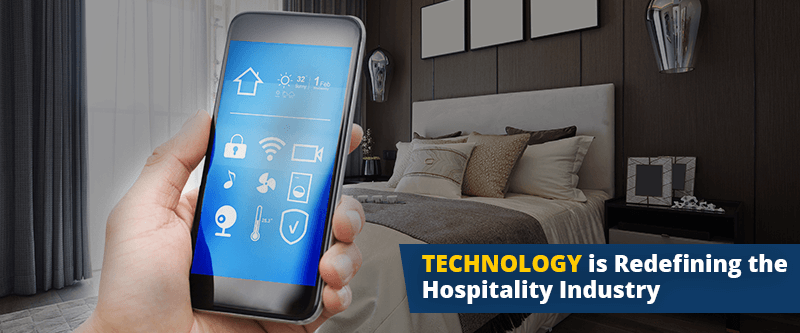In the ever-evolving landscape of the hospitality industry, a paradigm shift is underway, with smart hotels leading the way in embracing technology to enhance the guest experience. From automated check-ins to personalized room controls, the integration of cutting-edge technology is reshaping traditional hospitality, ushering in an era of convenience, efficiency, and unparalleled guest satisfaction.
Seamless Check-In and Keyless Entry
One of the hallmarks of smart hotels is the transition towards seamless check-in processes and keyless entry systems. Gone are the days of waiting in line at the front desk; smart hotels leverage mobile apps to enable guests to check in remotely and access their rooms with digital keys. This not only expedites the check-in process but also provides guests with a sense of control and security , setting the tone for a tech-savvy and hassle-free stay.
In-Room Automation and Personalization
The integration of Internet of Things (IoT) devices has transformed hotel rooms into smart, interconnected spaces. Guests can now control room temperature, lighting, and entertainment systems with the touch of a button on their smartphones or through voice-activated assistants. This level of in-room automation not only enhances convenience but also allows for a personalized and customizable experience, catering to the unique preferences of each guest.
Artificial Intelligence and Virtual Assistants
Artificial intelligence (AI) is playing a pivotal role in elevating the guest experience in smart hotels. Virtual assistants, powered by AI, are becoming increasingly common, offering guests the ability to make inquiries, request services, and receive recommendations—all through voice commands or chat interfaces. These AI-driven systems not only streamline communication but also provide valuable insights for hotel management to continually enhance their services based on guest feedback and preferences.
Enhanced Guest Services through Data Analytics
Smart hotels leverage data analytics to gain insights into guest behavior and preferences. By analyzing data collected from various touchpoints, including mobile apps, sensors, and in-room devices, hotels can tailor their services to meet individual needs.
This data-driven approach allows for anticipatory service, where hotels can proactively address guest preferences, providing a more personalized and memorable stay.
Contactless Services and Health Safety Measures
The recent global health crisis has accelerated the adoption of contactless technologies in smart hotels. From contactless payment options to virtual concierge services, technology is not only providing convenience but also addressing health and safety concerns.
Smart hotels are investing in advanced cleaning technologies, such as UV-C disinfection robots, to ensure a safe and sanitized environment for guests, further emphasizing the importance of tech-driven solutions in the post-pandemic era.
The Future of Hospitality
The rise of smart hotels marks a transformative period in the hospitality industry, where technology is at the forefront of providing an enhanced and streamlined guest experience. As the integration of AI, IoT, and data analytics continues to evolve, smart hotels are well-positioned to meet the growing demands of tech-savvy travelers.
The future of hospitality lies in the seamless fusion of technology and hospitality, where smart hotels redefine the standards of service and redefine the way we experience accommodation.









